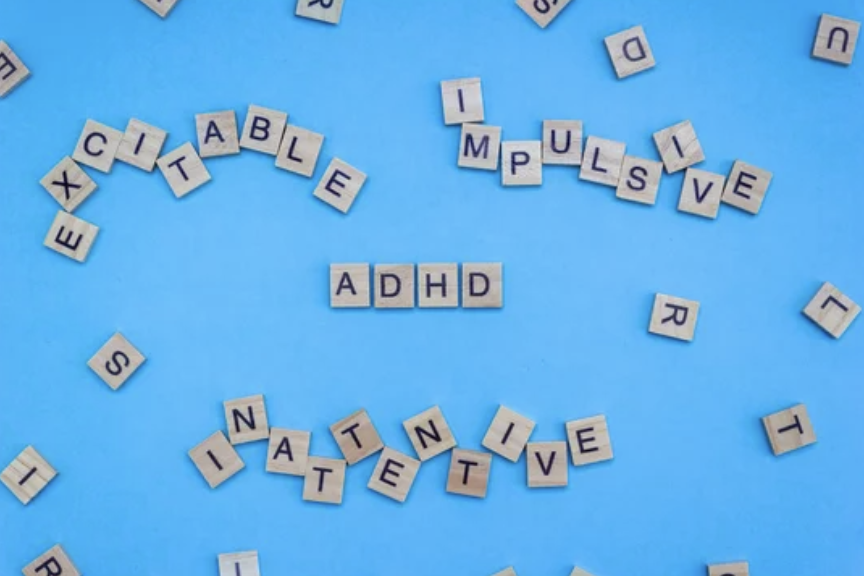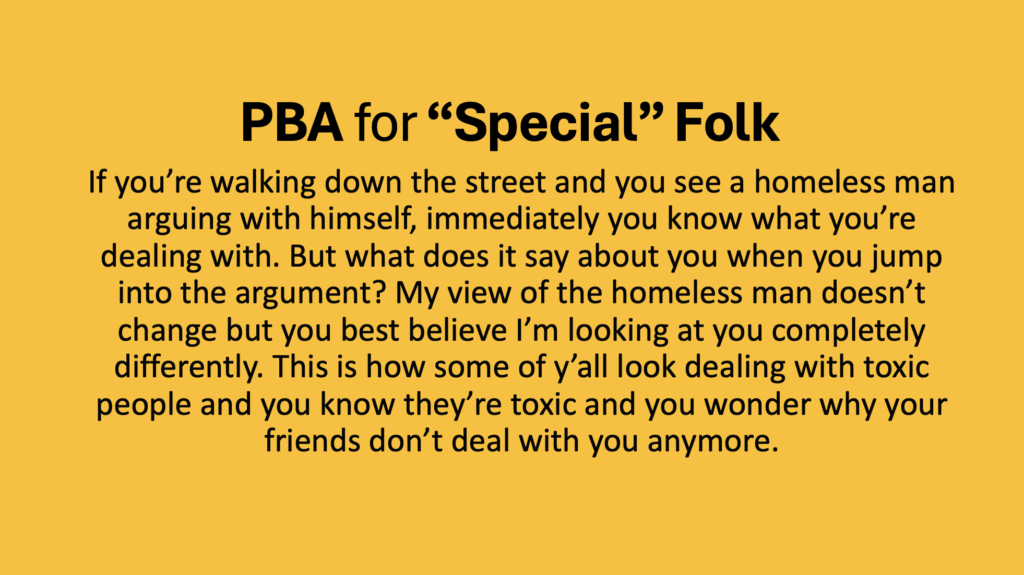
Creating a fulfilling and positive life often involves surrounding ourselves with supportive relationships. However, it’s essential to recognize when certain behaviors cross the line into toxicity. Patterns of behavior like constant criticism, disregard for boundaries, breaking promises, and prioritizing one’s own needs without considering others can be signs you with a toxic person that exhibits traits associated with certain personality disorders.
Narcissistic Personality Disorder (NPD) is one example that may encompass some of these behaviors. Individuals with NPD often display a lack of empathy, an inflated sense of their own importance, and a persistent need for admiration. They may also exploit others to achieve their own goals.
Borderline Personality Disorder (BPD) is a complex mental health condition characterized by intense emotional experiences, difficulty with self-regulation, and challenges in forming and maintaining stable relationships. Individuals with BPD may exhibit traits that can be perceived as toxic in relationships due to the nature of the disorder.
Here’s an explanation of how certain Narcissistic and BPD traits may contribute to the behaviors described:
Unstable Relationships
Narcissism and BPD is associated with cognitive distortions, where individuals may perceive events and relationships in an emotionally charged and distorted manner. While narcissists may struggle with emotional regulation due to a lack of empathy and a need for constant admiration, individuals with BPD may experience emotional dysregulation rooted in fears of abandonment, trust issues, and identity instability, where individuals struggle to manage and modulate their emotions effectively.
This can lead to a constant sense of dissatisfaction, misinterpretation of others’ actions, and a heightened sensitivity to perceived slights. This can result in mood swings, impulsive behaviors, and intense reactions to perceived slights. The difficulty in regulating emotions may contribute to instances of constant criticism or intense emotional outbursts.
These individuals may alternate between idealizing and devaluing others, contributing to a pattern of intense relationships marked by periods of intense admiration followed by criticism or detachment.
We all need constructive feedback, but when criticism becomes a constant barrage undermining your achievements, it’s a red flag. Recognize that your efforts and dedication are valuable. By allowing constant criticism, you compromise your self-worth. Stand up for yourself, assert that you deserve respect, and reinforce your own sense of accomplishment.
When someone belittles your accomplishments, they’re effectively denying the effort and dedication you’ve put into achieving them. This is a blatant disregard for your abilities and hard work. Moreover, if this person makes you feel inadequate or inferior, they’re directly attacking your self-worth.
Tolerating such behavior is a sign of a lack of self-respect. By not addressing this issue, you’re silently agreeing with their negative assessment and allowing them to continue treating you in this manner. It’s crucial to stand up for yourself and assert that you deserve respect and recognition for your accomplishments. This not only communicates to others how you expect to be treated but also reinforces your own sense of self-worth and respect.

Identity Instability
Individuals who struggle with narcissism and BPD often struggle with a sense of self and may adopt different identities or roles in an attempt to find stability. Everyone they date they will take on the traits of their love interest. If someone is really religious, they will pretend to be a person of the same faith. If someone is really woke, they will pretend to be progressive and liberal. This can lead to difficulties in understanding and respecting their own needs and boundaries, as well as challenges in recognizing and respecting the needs and boundaries of others.
Healthy relationships thrive on mutual respect for boundaries. When someone consistently disregards your boundaries, they disrespect your feelings and autonomy. By tolerating this behavior, you unintentionally convey that your needs are less important. Stand firm, communicate your boundaries, and make it clear that your feelings matter. This not only protects your dignity but also reinforces your self-worth.
When someone consistently disregards these boundaries, they are essentially ignoring your feelings and personal autonomy, showing a lack of respect towards you. This disregard can manifest in various ways, such as not respecting your personal space, time, or emotional needs, among others.
Tolerating this behavior, however, can be a sign of a lack of self-respect. By not addressing these boundary violations, you might be indirectly implying that your needs and feelings are less important than theirs. This tolerance not only allows the person to continue their disrespectful behavior but also undermines your self-worth and dignity.
Standing up for your boundaries is an act of self-respect. It sends a message to others (and yourself) that you value your needs and emotions and expect others to do the same.

Impulsivity
Impulsive behaviors are common in individuals with narcissism and BPD. This impulsivity may manifest in making promises they can’t keep, disregarding boundaries, or prioritizing their needs impulsively without considering the consequences. Impulsive actions can strain relationships and contribute to broken promises.
Trust is the foundation of any relationship, and broken promises erode that foundation. If someone consistently fails to keep their commitments, it’s a sign of disrespect for your feelings and expectations. Confront this behavior, communicate the impact of broken promises, and demand the respect you deserve. Standing up for yourself reinforces your self-respect and maintains trust in your relationships.
A promise is a commitment, and when it’s broken, it can chip away at the trust you have in the person who made it. Frequent instances of broken promises can lead to feelings of insecurity and uncertainty in your relationship with that person.
If you find yourself continually accepting these broken promises without addressing the issue, it could be an indicator of a lack of self-respect. By not confronting the person about their behavior, you’re allowing them to continue undermining your trust and taking you for granted.
Standing up for yourself in these situations is crucial. It sends a clear message that you value your feelings and expect others to respect their commitments to you. This not only helps to maintain the trust and respect in your relationships but also reinforces your own self-respect.
Prioritizing Their Needs Over Yours
Balance is crucial in relationships, and mutual consideration for each other’s needs is fundamental. If someone consistently prioritizes their needs without considering yours, it creates an imbalance and disregards your feelings. Assert yourself, communicate your needs, and make it clear that your feelings are just as important. This act of self-respect restores balance and strengthens your sense of self-worth.
If you find that someone consistently prioritizes their needs without considering yours, it demonstrates a lack of respect. They are effectively dismissing your feelings and needs, which can lead to feelings of resentment and emotional exhaustion on your part. This behavior can make you feel undervalued and overlooked, creating an imbalance in the relationship.
Tolerating such behavior could indicate a lack of self-respect. By not addressing the issue, you’re allowing this person to continue disregarding your needs and feelings, which reinforces the idea that their needs are more important than yours.
Standing up for your own needs is a vital act of self-respect. It communicates to others that your feelings are important and should be considered. This not only helps restore balance and respect in the relationship but also strengthens your sense of self-worth.

Get Out
Your self-respect serves as a shield against behaviors that can chip away at your dignity and self-esteem. Building and maintaining healthy relationships isn’t just about respecting others – it’s equally about respecting yourself. By identifying and addressing toxic behaviors, you can end toxic relationships, reclaim your self-respect and foster healthier connections.
Maintaining self-respect is the cornerstone of a healthy, fulfilling life. If you find yourself tolerating disrespectful behaviors, it’s time to reassess and take action. Recognize that standing up for yourself is not only about setting boundaries but also about reinforcing your own worth. Remember, self-respect is the first step towards acknowledging your deserving of love, consideration, and positive opportunities. By identifying and removing toxic people from your life, you pave the way for personal growth, positive relationships, and a more empowered you.

Releasing toxic attachments is a crucial step toward personal growth and well-being. Remember that the process of releasing toxic attachments is highly individual, and progress may come in stages. It’s essential to approach this journey with patience, self-compassion, and a commitment to personal well-being. If the situation feels overwhelming, seeking professional assistance can provide additional support and guidance.
Leave a Reply